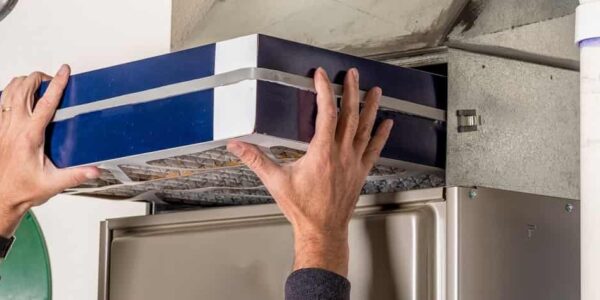
The air filter in your air conditioning system passes through a mesh to catch pollutants and particulates. The mesh becomes denser as more air passes through, so it does not impede airflow. If your air filter becomes too dirty, it will restrict airflow and poor indoor air quality. This can cause serious problems with your indoor air quality, especially if you don’t know how to identify the signs of a dirty filter. If you are considering AC repair service in Abu Dhabi, visit this site.
Electrostatic air filters:
Electrostatic air filters might not immediately come to mind when you think about how air filters work in an AC or heating system. However, these filters effectively prevent dust and dirt from accumulating on the components, resulting in increased efficiency and reduced operating costs. Dust is one of the most common causes of heating and cooling system breakdowns. An electrostatic air filter can prevent such costly breakdowns.
Media filters:
Generally, media filters have a low maintenance requirement and only need to be changed once or twice a year. Their surface area allows them to trap more pollutants. If you’re looking for an inexpensive air filter, consider buying a carbon Clean 16. This type of air filter is made of activated carbon with micro-fissures to increase the surface area of the carbon. This carbon is then activated by passing air over the coated fibers. The Carbon Clean 16 filter is rated MERV 16, which means that it can capture viruses, bacteria, and mold.
HEPA filters:
HEPA air filters work in AC by trapping microscopic pollutants, like dust mites, mold spores, pollen, and other particles. These pollutants can be harmful to your health. These filters have a high-efficiency level and are typically used in hospitals, vehicles, and other applications where contamination control is a priority. They also extend the unit’s service life and improve interior air quality. Here’s how they work.
Standard air filters:
The size of air filters is described by a system called the minimum efficiency reporting value (MERV). The MERV value is a number that ranges from one to sixteen, with higher values indicating better filtration. Most filters fall in the MERV range of one to four, providing a basic filtration level. MERV six and eight filters provide greater levels of filtration and are generally used in residential units. They are typically made of cloth or pleated paper and have a larger surface area for capturing airborne particles.

